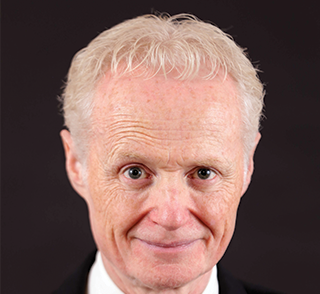
CIM Distinguished Lecturers
Brian Lee Crowley is managing director of the Macdonald-Laurier Institute (MLI), a public policy think tank focusing on how to use federal power intelligently in the interests of all Canadians. MLI is consistently ranked the top think tank in Ottawa. Dr. Crowley was also the founder of the Atlantic Institute for Market Studies (AIMS) in Halifax, one of the country's leading regional think tanks.
One of Dr. Crowley's interests is the economic importance and vitality of the natural resource. His work in this regard includes a plethora of studies, commentaries, op-eds, and more. He has recently focused in particular on the extent to which reconciliation with Indigenous people is already well-advanced along the natural resource frontier and how much Canadians have to learn from these experiences.
Over his long career, Dr. Crowley has distinguished himself as an author, a former Clifford Clark Visiting Economist with the federal Department of Finance, and as a frequent media commentator with expertise related to natural resources, Canada-US relations, foreign affairs, regional development policy, healthcare and more.
Distinguished Lecturer 2019-20
Lecture Abstract
When Demands for Social Licence Become an Attack on Democracy
Activists who propagate social licence claims are undermining the rule of law and our democratic institutions. They are free to exercise their democratic right to publicly disagree with their decisions, and even to threaten politicians with a loss of support if particular projects go ahead. It is wholly undemocratic, however, to say that you simply disregard the decisions of duly constituted constitutional and democratic authority as without merit or foundation. Furthermore, the failing to critically analyze the concept of social licence is creating problems in Aboriginal communities. A good example is the Chevron Pacific Trail Pipeline in British Columbia. While the builder has managed to win support from several First Nations groups, a small minority are still opposed and have threatened to block the development of the project. Relying too much on social licence allows First Nations groups that oppose development to hijack the desires of those who do. It also undermines important concepts, such as governments’ and businesses’ constitutional “duty to consult” with Aboriginals.
 - dev.png)

